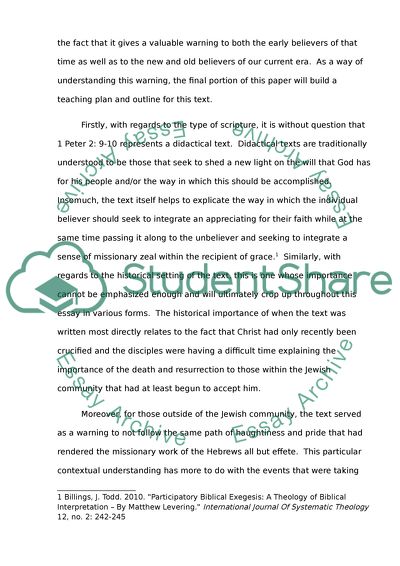Cite this document
(“Exegesis of I Peter 2:9-10 Essay Example | Topics and Well Written Essays - 3000 words”, n.d.)
Retrieved from https://studentshare.org/religion-and-theology/1615166-exegesis-of-i-peter-29-10
Retrieved from https://studentshare.org/religion-and-theology/1615166-exegesis-of-i-peter-29-10
(Exegesis of I Peter 2:9-10 Essay Example | Topics and Well Written Essays - 3000 Words)
https://studentshare.org/religion-and-theology/1615166-exegesis-of-i-peter-29-10.
https://studentshare.org/religion-and-theology/1615166-exegesis-of-i-peter-29-10.
“Exegesis of I Peter 2:9-10 Essay Example | Topics and Well Written Essays - 3000 Words”, n.d. https://studentshare.org/religion-and-theology/1615166-exegesis-of-i-peter-29-10.


